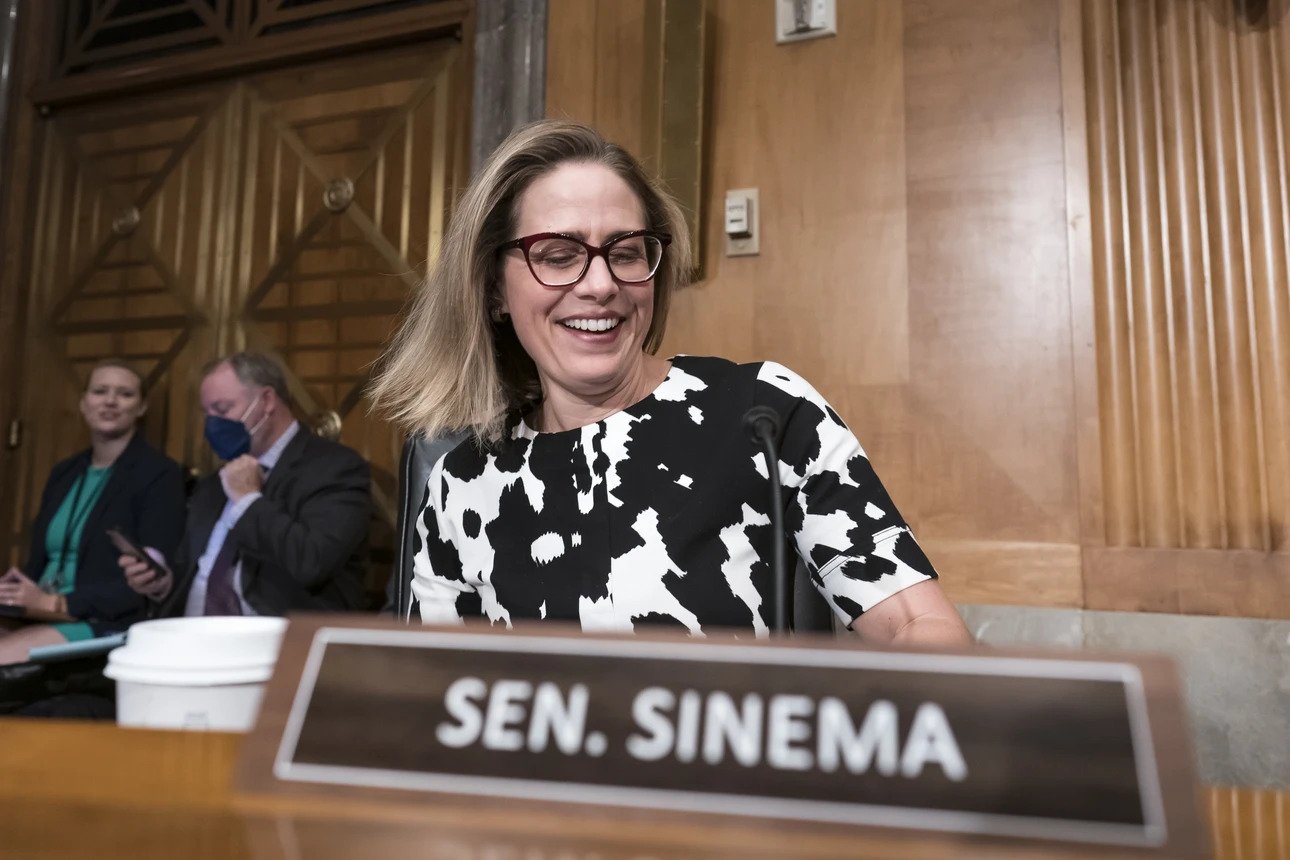For months, Joe Manchin was the Democrat with all the leverage. At the end, even he had to cede some ground.
After Manchin agreed with Senate Majority Leader Chuck Schumer on the party-line tax, health care and energy bill, the West Virginia Democrat found himself bargaining with fellow moderate Sen. Kyrsten Sinema. Both hard-nosed negotiators, the Arizona Democrats’ business-friendly tax-approach clashed sharply with Manchin’s more progressive positions on taxes.
Manchin sought to target the wealthy and ended up agreeing with Schumer to target the so-called carried interest loophole that allows some people to pay lower tax rates on investment income. He also signed off on a corporate minimum tax package that most Democrats believed Sinema supported.
Ultimately, Sinema took a scalpel to the corporate minimum tax and scuttled any changes to carried interest, which Manchin called particularly “painful.” Triangulating between them through all of it: Schumer, whose job was harmonizing the views of the very public Manchin with an often-silent Sinema.
“We argue with each other on issues, but we try to respect each other,” Schumer said of Manchin on Sunday as he chomped on a celebratory meal of leftover pasta cooked by his wife. “Sinema, if she gives you her word, you got it. But she’s not a schmoozer like Manchin.”
Almost exactly one year after Manchin and Sinema teamed with Republicans to pass a historic infrastructure bill, the two moderates on Sunday cast decisive votes for Democrats’ second piece of the puzzle. It was far smaller than the party’s original $3.5 trillion vision, but larger than the slim health care legislation that lawmakers were considering just two weeks ago. It’s probably the last big party-line bill Democrats will be able to deliver for years, with the House expected to flip to Republicans in the November elections.
The package delivered more than $300 billion in climate and energy investments, reformed prescription drug prices and created a new minimum tax on large corporations. Sunday’s passage of the legislation marked a triumphant moment for a party that for years has talked a big game on lowering drug prices and fighting climate change.
The yearlong drama demonstrated the difficulties Schumer faces every day in running a 50-50 Senate, corralling a caucus that includes 47 other senators with their own ideas plus Sinema and Manchin, two centrist senators with divergent priorities.
Twice in full view on the Senate floor, Manchin animatedly conversed with Sinema about his deal, including pieces of the tax legislation that Sinema felt would stymie economic growth in Arizona. Manchin observed of his relationship with Sinema and the tax dispute: “We have more in common than we don’t. I just have a difference on this.”
“They both are pains in the neck, but pains in the neck who I respect,” said Sen. John Hickenlooper (D-Colo.) admiringly. “I don’t feel they’ve ever misled me, or said something that was untrue.”
Manchin killed the $1.7 trillion Build Back Better bill back in December after failed negotiations with President Joe Biden. Two months later, Schumer and Manchin broke bread, and Manchin delivered his negotiating position: He wanted to wait until April before trying again. And when they did, he only wanted to talk to Schumer.
After Russia invaded Ukraine and Europe’s energy supplies were squeezed while U.S. gas prices began rising, Manchin then saw an opportunity to make big climate change investments while simultaneously boosting fossil fuel production this spring.
“That is the catapult that basically launched me,” Manchin said in an interview. “Iran is the greatest proliferator supportive of terrorism in the world, right? And we’re going to give them money? Over my dead body.”
